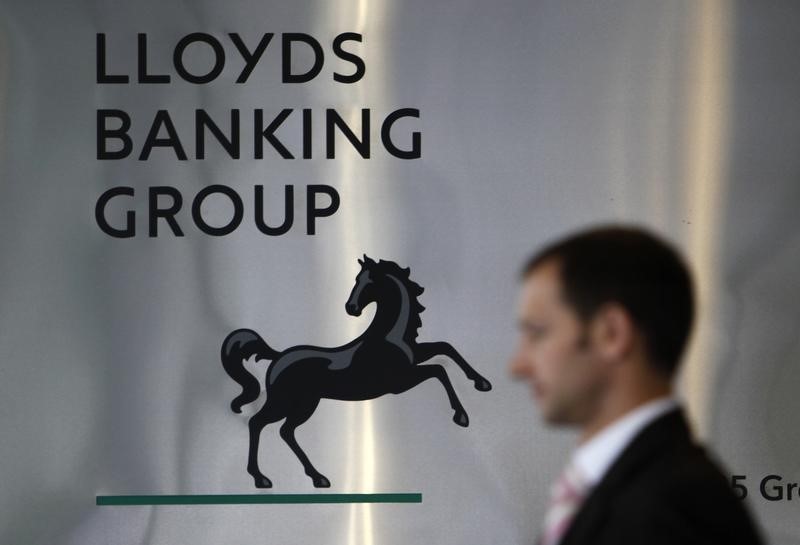By Matt Scuffham
EDINBURGH (Reuters) - Lloyds Banking Group (L:LLOY) could be fully returned to private hands within the next year, Chairman Norman Blackwell said at the company's annual meeting.
The government has already sold nearly half of the 41 percent stake it took as a result of its 20-billion-pound rescue of the bank during the 2007-9 financial crisis, raising over 10 billion pounds for taxpayers.
It is continuing to sell the shares to financial institutions such as pension funds and insurers and is also planning a sale to private retail investors later in the year.
Asked if the government could complete its exit in the next year, Blackwell told reporters: "It's possible and would be very desirable. Whether the government can achieve that depends on the market conditions."
Blackwell told shareholders at the meeting that the bank may consider other ways of returning capital to shareholders in the future, having announced its first dividend for six-and-a-half years in February.
He also confirmed that the bank planned to announce a dividend alongside both its half-year and full-year results this year.
"The resumption reflects the transformation of the business over the past four years," he said.
In the medium term, Lloyds has said it plans to return at least 50 percent of its sustainable earnings to shareholders. That could include extra one-off dividends or buying back the bank's shares.
"Going forward we will think about all the options open to us if we're in the wonderful position of having excess capital," Blackwell told the meeting.
Lloyds also said 97.67 percent of shareholders at its annual meeting approved its pay plan for 2014, avoiding a significant revolt over the issue.
Shareholder advisory group Pirc had recommended shareholders should reject the bank's remuneration policy, saying pay for Chief Executive Antonio Horta-Osorio was "highly excessive".
Horta-Osorio, who was handed a package worth 11.5 million pounds in 2014, told the meeting the bank was well placed to benefit from the continued strength of Britain's economy, enabling it to return value to shareholders.

"I'm not concerned if he's delivering. If he wasn't delivering then it would be a different story," an individual shareholder told Reuters at the meeting.